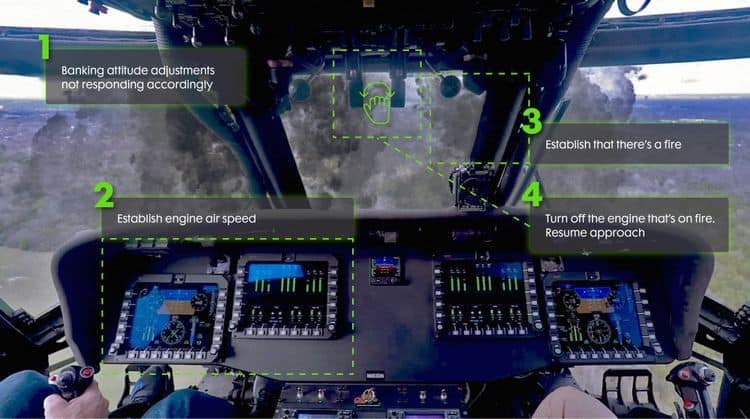
Northrop Grumman has been awarded a contract from the Defense Advanced Research Projects Agency (DARPA)’s Perceptually-enabled Task Guidance (PTG) program to develop a prototype Artificial Intelligence (AI) assistant.
In partnership with the University of Central Florida (UCF), Northrop Grumman will develop an Operator and Context Adaptive Reasoning Intuitive Assistant (OCARINA) that will support UH-60 Blackhawk pilots, who fly with both visual and instrumented flight, which varies with weather, time of day and other environmental factors.
The new solution will help rotorcraft aircrews to better deal with challenges encountered during a flight mission, which include flying in close proximity to buildings, terrain and people, or enemy radar threats. The prototype will be embedded in an Augmented Reality (AR) headset to help rotary pilots perform expected and unexpected tasks.
DARPA’s PTG program aims to develop AI technologies to help users perform complex mental and physical tasks. The goal is to provide users of PTG AI assistants with wearable sensors that allow the assistant to observe what the user perceives and know what the user knows. Using advanced information processing and an AR interface, the goal of the program is to have the AI assistant provide feedback and guidance through speech and aligned graphics at the right place and time to augment the aircrew.
“The goal of this prototype is to broaden a pilot’s skillset,” said Erin Cherry, senior autonomy program manager, Northrop Grumman. “It will help teach new tasks, aide in the recognition and reduction of errors, improve task completion time, and most importantly, help to prevent catastrophic events.”












